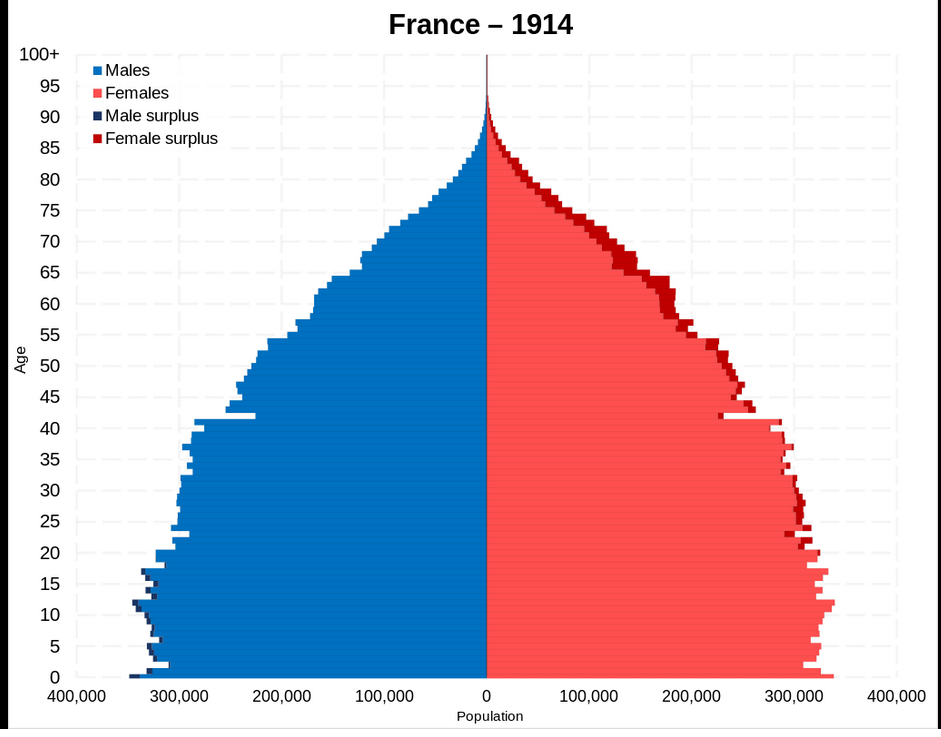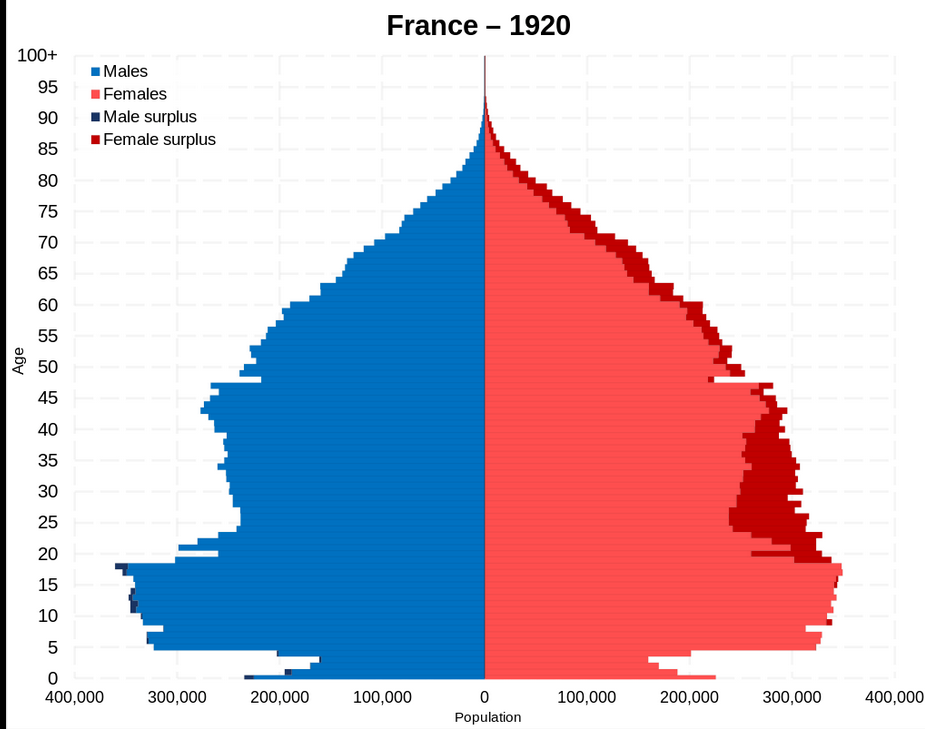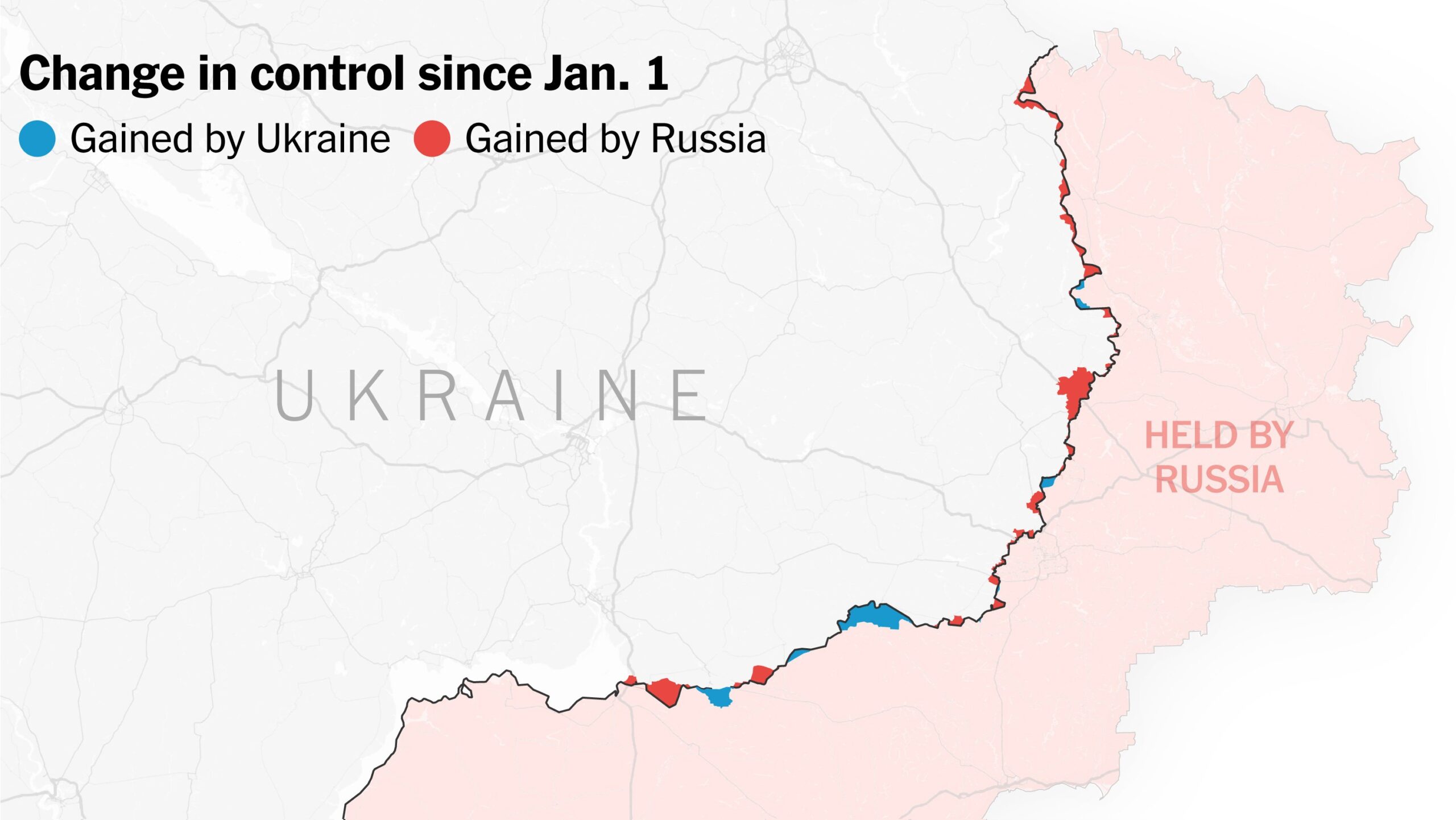In the Ukraine, Russia is advancing, and while it’s slow, it’s steady and a lot better than Ukraine did in its complete flop of a counter-offensive. Weapons and aid from America are now flowing to Palestine, and most Western countries are reluctant to send more arms and munitions, not least because the shelves are almost bare and production has not been significantly ramped up.
Russia, on the other hand, has vastly increased its ability to produce key munitions, and is importing from North Korea and Iran (though Iran may soon become more reluctant.) The Russians have more artillery, more missiles and more drones, and plenty of artillery shells. Ukraine is so desperate for manpower it is trying to force Ukrainian who fled to other countries to return so they can be conscripted, and it has expanded conscription among women.
The immediate front is highly fortified, and Russian movement into it is slow, though not as slow as Ukraine’s was. Mud is also an issue, but it remains entirely poss that Russia will break thru at some point in the next few months.
Militarily, it would be very much in Russia’s interest if the Israel/Palestine war was to expand, and if the US was to become involved
As for Gaza and Palestine, the Israeli Army keeps coming up with excuses not to invade Gaza. First it was “there are clouds”, now it is “we won’t invade while Biden is in Israel.” Hamas still has at least 40K troops, and Gaza is excellent defensive ground, plus if Hezbollah wants to open a second front, it’s logical for them to wait till Israeli troops are engaged in Gaza.
The US may have indicated (I have some doubts) that if Hezbollah attacks Israel, it will attack Hezbollah. I’m not sure how well this will work out for the US: even Jordan might no longer be willing to base their aircraft, Iraq bases will come under attack immediately, and I suspect Turkey will forbid sorties to fly from there. That means reliance on aircraft carriers, and Hezbollah has anti-ship missiles, with Iran having a lot more.
Part of what is driving Israel to delay the invasion of Gaza (or rethink it entirely) is a desire to make sure that if regional war occurs, the US is actually part of the war. Israel alone against Hezbollah/Syria/Iran/Hamas, is in serious danger of losing.
Water has supposedly been turned back on in Gaza, but it makes little difference, as there isn’t enough power to run pumps and deslanization, and much of that infrastructure was bombed day one by the Israelis.
Leaving aside direct deaths from lack of water, or drinking untreated water and sea-water, it would be surprising if there wasn’t a cholera epidemic soon.
Even leaving aside a ground incursion, actual genocide can occur if the water, food and power situation is not resolved soon.
Negotiations are ongoing to get humanitarian aid in with some commitments made so there’s reason for mild optimism.
Likewise there are negotiations to allow refugees out to Egypt, though Egypt definitely doesn’t want them and it’s going to take some massive bribes to get them to accept anything more than token numbers, if they will at all. (Egypt is in a debt crisis right now, if I were them I’d hold out for actual debt forgiveness, not another crap IMF deal.) Remember that Hamas is ideologically aligned with the Muslim Brotherhood, whom the Egyptian military couped, and violently suppresses in Egypt, where they are the natural ruling party.
It is also true that allowing massive numbers of refugees into Egypt gives Israel the “win”, allowing them to ethnically cleanse another group of Palestinians
Gaza hospitals have been repeatedly hit, and there are reports Gaza is now out of painkillers among many other medicines and medical supplies. Given how bombing tends to produce burn victims, this is especially horrific.
There is still serious danger of escalation of the Israeli/Palestinian war, and if it escalates it could escalate very quickly and widely. If the US starts hitting Iran, well remember that Iran is a serious Russian and Chinese ally. Understand also that the “street” in most Muslim countries is super-majority pro-Palestine.
Frankly, if I were them and could co-ordinate it, I’d just all declare war and finish the problem once and for all. Israeli unconditional surrender, and the creation of a new Palestinian state with equal rights for all, no matter their religion or ethnicity. Then de-Zionize. In other words, give them the Germany/Japan post-WWII treatment. As long as Israel exists as a religious ethnic apartheid state, it will remain a source of massive instability, and remain the possible flare up point for regional or even world war.
We’ll continue to keep an eye on Palestine going forward, but I’ll see if I can weave in articles on other topics.
Donors and subscribers make it possible for me to write, so if you value my writing, please DONATE or SUBSCRIBE



